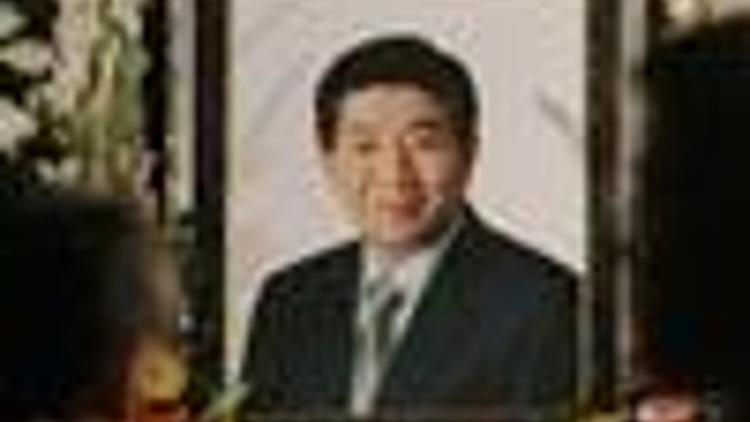Embattled South Korean ex-president dead, leaves suicide not
Güncelleme Tarihi:

SEOUL - Former South Korean president Roh Moo-Hyun, who was at the centre of a multi-million dollar corruption probe, plunged to his death off a mountainside Saturday in an apparent suicide.
Police said they were investigating whether Roh, who held office from 2003-2008, killed himself. A former aide said the ex-leader jumped off a cliff after leaving a suicide note.
Roh, 62, had left home around dawn with a bodyguard and climbed a mountain near his retirement
"He jumped off a rock in the mountain at 6:40 am (2140 GMT Friday)," former chief presidential secretary Moon Jae-In told journalists.
"He left a short suicide note addressed to his family members."
Police in Gyeongsangnam province confirmed a suicide note was found on Roh’s computer at his home. A hospital in the southern city of
"It has been so tough," local media quoted the suicide note as saying. "I caused so much trouble to many people.
"Please cremate my body. Please erect a small tombstone for me at the village."
A shocked President Lee Myung-Bak described the death as a national tragedy.
"It is truly hard to believe what happened. It is a sad, tragic incident," he was quoted by his spokesman as saying.
Roh, a former human rights lawyer, was credited with making his nation more democratic and less authoritarian.
He also doggedly pursued reconciliation with communist
Critics said the South gave the North too much for too little in return. A relatively sluggish economic performance, high youth unemployment and soaring property prices also undermined Roh’s popularity.
And Roh’s reputation as a clean leader was tarnished when he was questioned last month as a suspect in the corruption probe -- the third former leader to be quizzed on graft charges after leaving office.
The investigation centered around a payment worth one million dollars to Rohs wife from a wealthy shoe manufacturer, and a payment by the same man worth five million dollars to the husband of one of Roh’s nieces.
Prosecutors said they were considering issuing an arrest warrant.
Roh had apologized for his family’s involvement in the case but had not admitted personal wrongdoing.
"I feel ashamed before my fellow citizens," he said at the time. "I am sorry to have disappointed you."
Kim Dae-Jung, Roh’s predecessor as president, expressed "great shock and sorrow," according to an aide.
"I’ve lost my life-long companion, with whom I took part in struggles for democracy and shared 10 years of a democratic government," Kim said.
"Allegations concerning his family members have been leaked to the press every day," Kim said. "He was probably unable to bear the pressure and tensions any longer."
Roh’s body was taken in convoy to his retirement village where aides said the funeral would be held. Hundreds of uniformed police lined the route out of the hospital.
Some 800 supporters gathered at an altar outside Deoksu palace in central
Roh worked his way up from a farming village to the presidency, but in many ways remained an outsider whose bluntness alienated both political opponents and the public.
In the 2002 presidential election he scored a dramatic upset victory.
He pushed a generally liberal agenda, calling for a fairer distribution of wealth and characterizing himself as a fighter for the underprivileged.
But his aggressive and provocative remarks, coupled with a lack of skill in building political ties, often led to confrontations.
Roh bowed out in February 2008 after what he called a turbulent term. "I will be able to watch TV news comfortably from now on," he said at the time.
But little more than a year later he was back in the headlines as the graft probe expanded.

